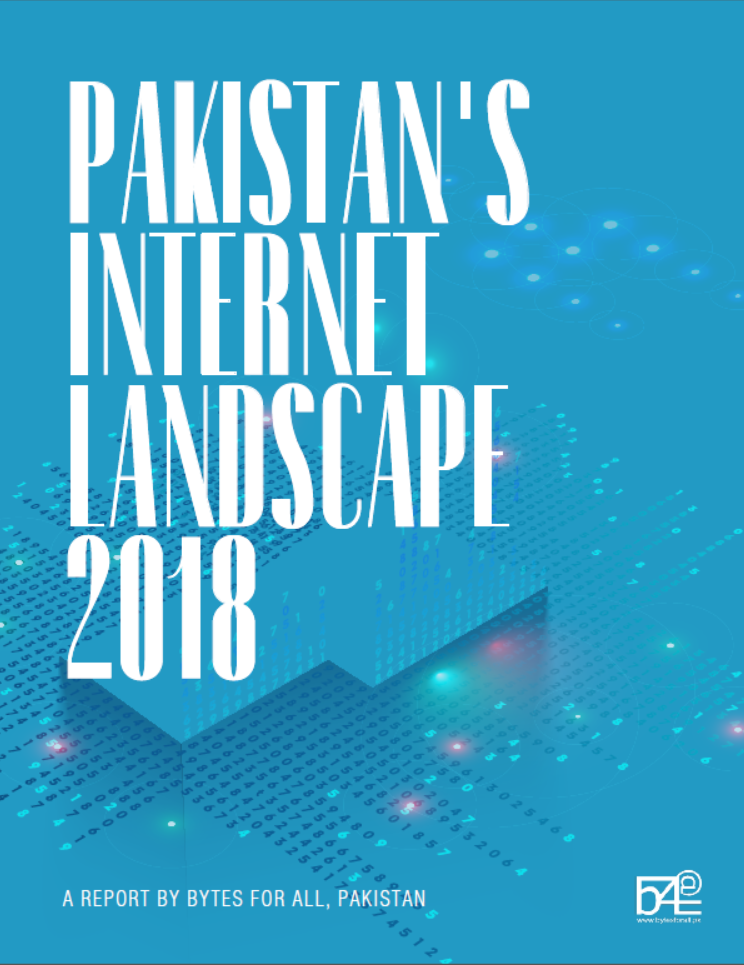From Our Member Bytes for All, Pakistan – Pakistan’s Internet Landscape 2018
22 April 2019 2:51 pm

FORUM-ASIA member Bytes for All, Pakistan published the fourth edition of “Internet Landscape of Pakistan”. The report focuses on trends in local cyberspace related to key topics including internet access, censorship and privacy, cybercrime and hacking, child porn, blasphemy, fake news, e-commerce and fin-tech/branchless banking, among others.
***
The fourth edition of “Internet Landscape of Pakistan” is an exhaustive mapping of the digital trends that not only impact citizens’ social, economic and political rights, but also determines how responsive and e ffecient the government is in addressing peoples’ problems. This report, we hope, would be useful for media professionals, policy makers, civil society, academia, UN special mandate holders and International development partners.
The report comes at a time when Pakistan, like many other countries in Asia specifically, is witnessing a tense struggle between a vibrant civil society and an oppressive, coercive and controlling polity. Over the year, since the last edition of this report was published, Pakistan has faced far greater control over free expression, increased censorship, secrecy of public policy decision-making, and violation of fundamental
freedoms of citizens.
It is noteworthy that since 2013, when the first edition of Internet Landscape of Pakistan came out, the usage of internet by the state and citizenry has increased manifold. Almost all organs of the state are visibly more concerned about what is said on the internet about them and of the services they deliver to the public.
Civil society has progressed tremendously in using the internet to highlight issues, to advocate legislative and political reforms, to sensitize people on complex issues concerning social justice and to gather mass support for human rights causes. However, just as civil society has adopted creative ways for expression through the internet, the state has also become more inventive in controlling opinion.
This report not only maps the trends in existing usage of the internet by all these stakeholders, but also dilates upon the possibilities of further innovation to not only bolster freedom of information and expression, but also to provide insight as to how the state could improve governance and service delivery to people.
(excerpt from the preface of the report)
***
For a PDF version of this statement, click here.
